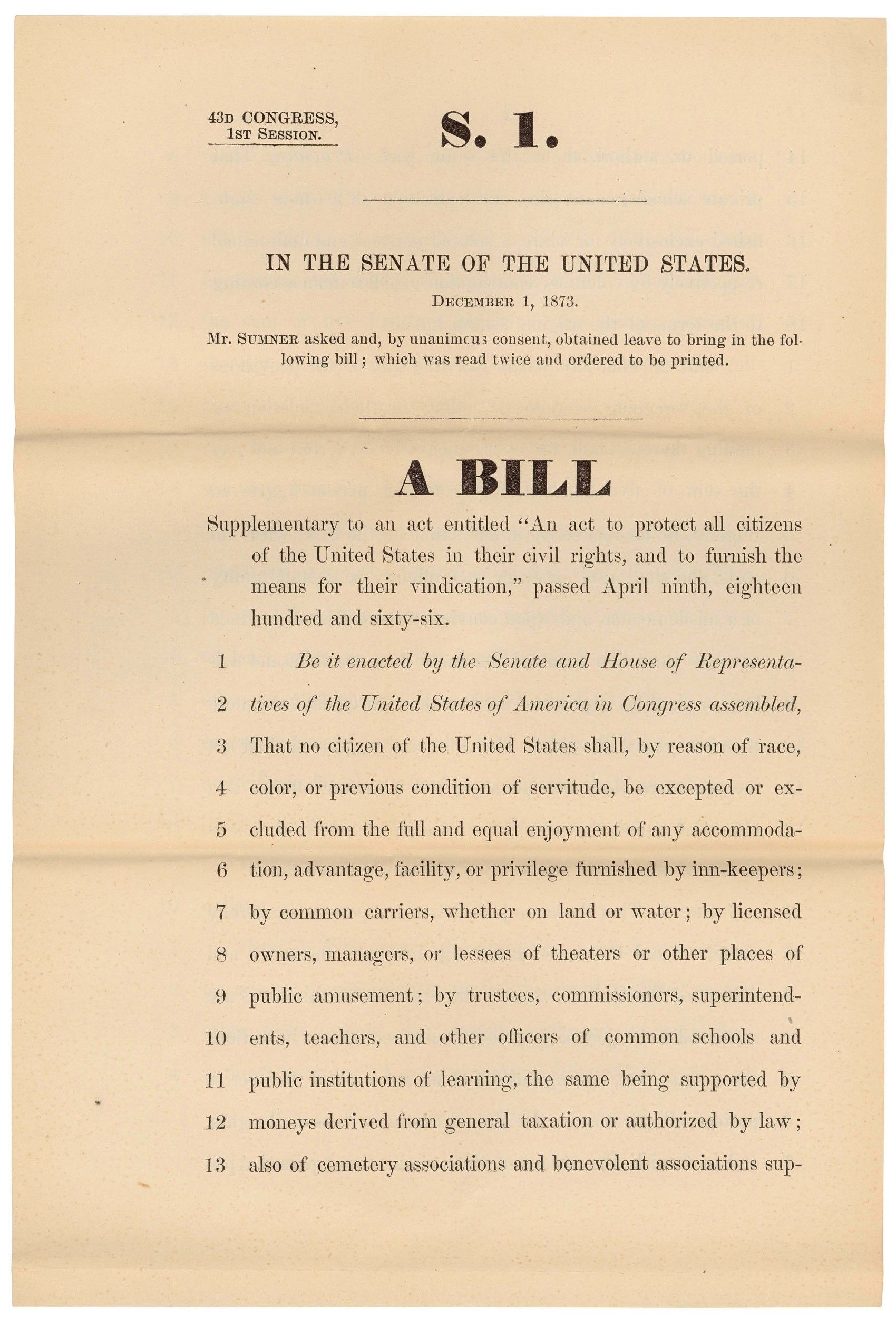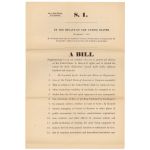Sumner Civil Rights Bill
12/1/1873
Add to Favorites:
Add all page(s) of this document to activity:

Add only page 1 to activity:
Add only page 2 to activity:
Add only page 3 to activity:
There was a great divide over how far the Government should go to enforce the rights established by the 14th and 15th Amendments. The Civil Right Act of 1875, first proposed by Senator Charles Sumner in 1870, was an attempt to codify those rights.
Senator Sumner was the chief Radical Republican leader during Reconstruction and a vocal proponent of civil rights for freedmen. He introduced the version shown here to the Senate in 1873. It proposed to prohibit racial discrimination in public accommodations, such as hotels, theaters, transportation, and schools. He was so determined to see it pass that on his deathbed in 1874 he begged Frederick Douglass not to let it fail.
The bill that passed after much debate and revision in 1875 stated that all American citizens “shall be entitled to the full and equal enjoyment of the accommodations, advantages, facilities, and privileges of inns, public conveyances on land or water, theaters, and other places of public amusement.” Prior to passage, Congress removed the clause which prohibited discrimination in public schools.
Senator Sumner was the chief Radical Republican leader during Reconstruction and a vocal proponent of civil rights for freedmen. He introduced the version shown here to the Senate in 1873. It proposed to prohibit racial discrimination in public accommodations, such as hotels, theaters, transportation, and schools. He was so determined to see it pass that on his deathbed in 1874 he begged Frederick Douglass not to let it fail.
The bill that passed after much debate and revision in 1875 stated that all American citizens “shall be entitled to the full and equal enjoyment of the accommodations, advantages, facilities, and privileges of inns, public conveyances on land or water, theaters, and other places of public amusement.” Prior to passage, Congress removed the clause which prohibited discrimination in public schools.
Sumner, who died in 1874, did not live to celebrate the bill’s passage. Nor did he see its ultimate failure when, in 1883, the U.S. Supreme Court ruled the Civil Rights Act of 1875 unconstitutional.
This primary source comes from the Records of the U.S. House of Representatives.
National Archives Identifier: 1986640
Full Citation: Sumner Civil Rights Bill; 12/1/1873; (HR43A-C1); Bills and Resolutions Originating in the Senate and Considered in the House, 1789 - 2003; Records of the U.S. House of Representatives, Record Group 233; National Archives Building, Washington, DC. [Online Version, https://www.docsteach.org/documents/document/sumner-civil-rights-bill, April 25, 2024]Activities that use this document
- From Dred Scott to the Civil Rights Act of 1875: Eighteen Years of Change
Created by the National Archives Education Team - The Three Branches of Government
Created by the National Archives Education Team - To What Extent was Reconstruction a Revolution? (Part 1)
Created by the National Archives Education Team
Rights: Public Domain, Free of Known Copyright Restrictions. Learn more on our privacy and legal page.






